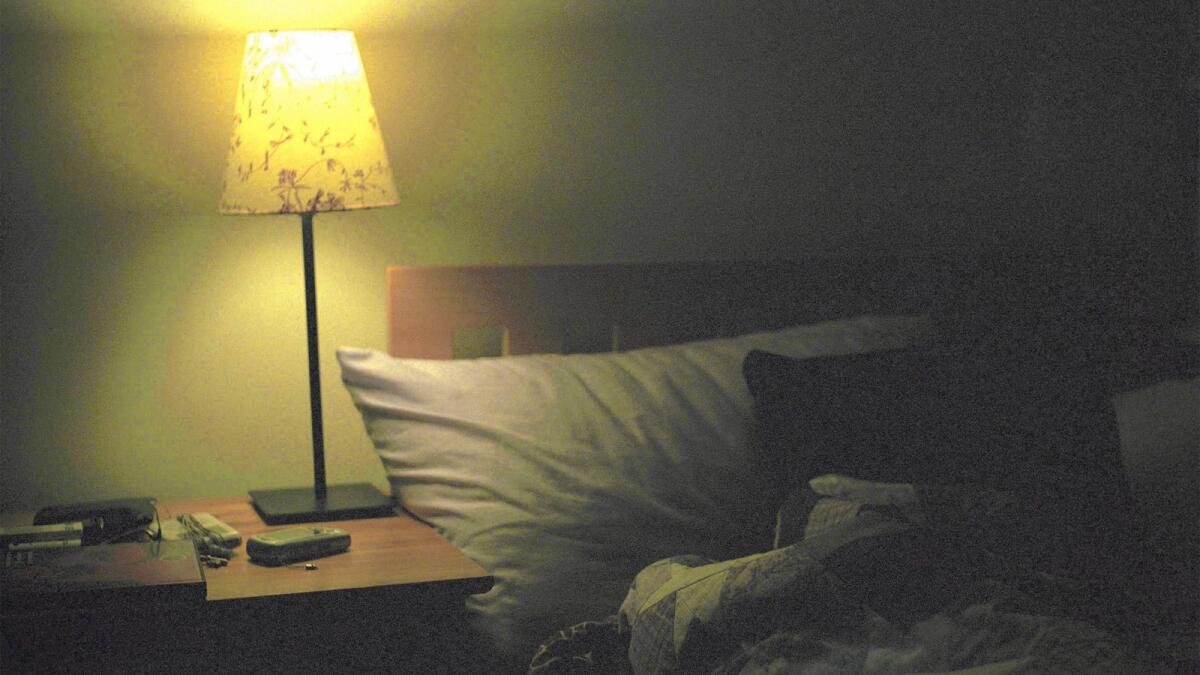Can’t keep off the pounds? Make sure you’re getting enough sleep

- Share via
You exercise, don’t overeat, maybe you’ve even tried going gluten-, flour-, sugar- or meat-free — but you still can’t drop the extra pounds.
A study published earlier this year in the journal Sleep joins mounting research suggesting that the reason for the extra weight might be a lack of sleep.
Why? For one, studies show that the sleep-deprived — those who fall short of the recommended seven to nine hours of sleep each night — eat about an additional 200 to 300 calories per day, said Erin Hanlon, a research associate in endocrinology, diabetes and metabolism at the University of Chicago:
“We found people who are sleep-deprived have increased eating and increased hunger and craving for high-carb, high fat-foods.”
Apps to regulate your sleep | Alarm clock-lamp | Deep sleepers
A lack of sleep also alters your hunger-regulating hormones, ghrelin and leptin.
“Leptin signals satiety. … Following sleep restriction your leptin is lower. So sleep deprivation is associated with telling us we’re hungry,” Hanlon said. “Ghrelin is the exact opposite — it drives hunger. So when people are sleep-restricted, ghrelin goes up. Sleep deprivation drives these two things to tell us we’re hungry.”
Sleep deprivation can also increase a risk of diabetes.
“There is extensive literature showing that sleep restriction is associated with impaired glucose metabolism and an increased risk of Type 2 diabetes,” Hanlon said, adding that even short-term sleep restriction significantly reduces insulin sensitivity.
And then, of course, you eat more in part because you’re awake longer.
“You don’t need a lot of extra calories to stay up longer,” Hanlon said.
But if you’re a compulsive overeater, the extra hours awake can lead to more snacking and eating.



